Should Your Child Get the Flu Shot? Top FAQs Answered
- Is the Flu Vaccine Safe for Children?
- Why Should You Give the Flu Shots to Kids?
- What Types of Flu Vaccination Are Available for Kids, and How Do They Protect?
- When Should Children Get the Flu Shot or Influenza Vaccination?
- Where Can Children Get Vaccinated With Flu Shots?
- Should Children Get Flu Vaccination Every Year?
- Who Should Not Get the Flu Shot?
- What Are the Side Effects of Flu Shots on Children?
- Can Flu Vaccination Cause Flu to My Child?
- FAQs
Whenever we have a drippy nose or blocked senses, questions like these, “Is it a cold or a flu?” “Am I down with the flu?” always pop up. According to the CDC, the flu or influenza is a contagious respiratory illness caused by the influenza virus. The symptoms include fever, cough, stuffy nose, sore throat, fatigue, muscle aches (1). It could cause severe complications in a child, such as pneumonia, bronchitis, and ear and sinus infections, if not treated properly (2). With timely flu shots, you can prevent the severity of this disease. However, many parents are hesitant about the safety of flu vaccinations, while some are simply unaware of it.
Ahead, we have answered some frequently asked questions about influenza vaccination for children that will help you keep track of your child’s health and immunity.
Is the Flu Vaccine Safe for Children?
Yes, flu vaccination is absolutely safe for children over 6 months old. It is one of the best forms of protection from the influenza virus.
Children under 5 are highly susceptible to catching the influenza virus and developing severe complications. This applies to all kids, not just those with existing medical conditions. The Indian Academy of Pediatrics recommends that children between 6 months and 5 years receive the annual flu vaccination (2).
Why Should You Give the Flu Shots to Kids?
The Centers for Disease Control (CDC) suggests that an average of 20,000 children under 5 years are hospitalised annually because of flu complications. Young children are not immune to environmental factors and easily contract the flu, developing complications. Children with chronic health issues, including diabetes, asthma, and other severe respiratory issues, can develop serious complications from the flu. Hence, flu vaccination for children is beneficial.
An influenza vaccination can benefit a child in several ways, some of which are discussed below:
- The flu vaccination reduces the risk of fatality and hospitalisation in children.
- It decreases the severity of the infection among vaccinated children who get sick with the flu (3).
- Immunisation reduces the chances of developing serious complications if the child is less than 5 years old.
- The vaccinated child will not be able to miss school, childcare, or any other academia just because of the flu.
- Vaccination also reduces doctor visits, and you will have more time to spend with your child.
- Immunisation also prevents the spread of flu infection from sick children to individuals who come in contact with them, especially young babies below 6 months, as they are too vulnerable and young to get a flu vaccine.
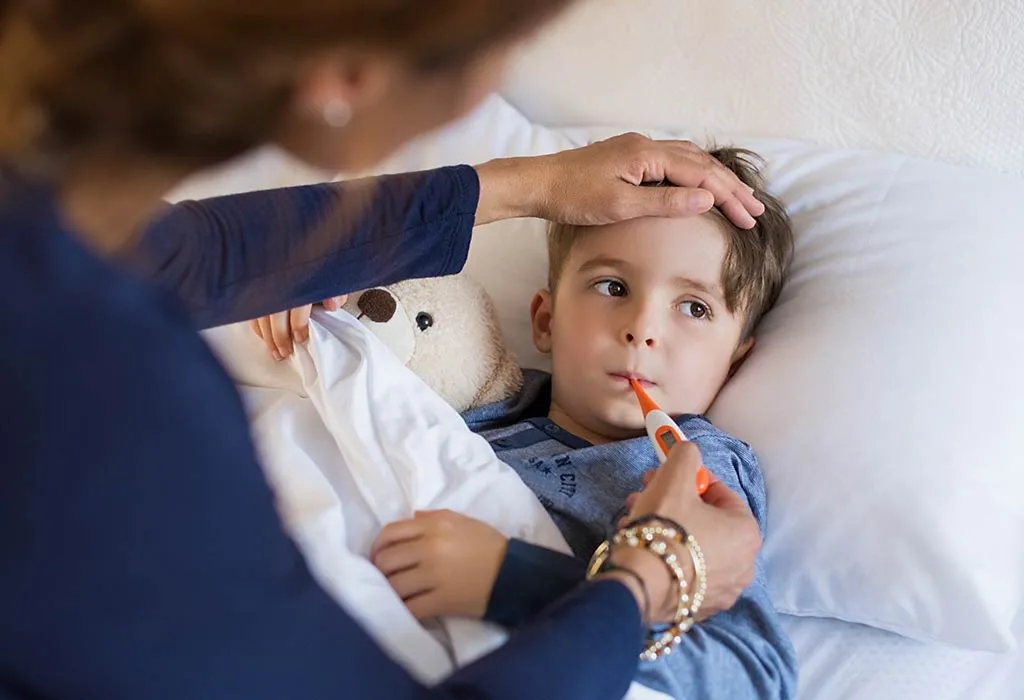
What Types of Flu Vaccination Are Available for Kids, and How Do They Protect?
Two types of flu vaccination are available for kids: the flu shot (injectable vaccine) and the intranasal vaccine (4).
- Flu Shot: This vaccine is administered to a patient via a sterile injection into the muscles. It causes slight pain and mild side effects, such as soreness or a mild rise in temperature in the injected individual. This vaccine can be given to children above 6 months (5).
- Intranasal Vaccine: The intranasal vaccine is a human live attenuated flu vaccine administered via the nasal tract. It is administered as a spray into the nostrils so it does not cause pain or allergy. This type of vaccine can be given to children two years of age and above.
Both types of vaccinations create antibodies in the host to fight off the influenza virus when it enters the body. While the flu shot only protects from antibodies in the blood, intranasal vaccination protects from the virus at two levels: the nasal tract (local level mucosal immunity) and the blood.
Each vaccine dose contains four influenza virus strains (Influenza A and Influenza B) (2). Talk to your healthcare professional about the best type of flu vaccination suitable for your child.
When Should Children Get the Flu Shot or Influenza Vaccination?
The best time for children to get their annual flu shot is right before the beginning of the flu season, which usually comes in monsoon and winter. The timeline varies with geography, differing from country to country.
In Indian regions where monsoon is the peak season for influenza from July-September, the vaccination should be given pre-monsoon, i.e., during April-May (6). On the contrary, the vaccine should be given during October-November in the regions where winter (January-March) is the peak season for influenza (Jammu, Kashmir, Tamil Nadu, etc.) (7)
Make appointments with your paediatrician and get your child vaccinated with the flu vaccine as soon as the new annual flu vaccine is available.
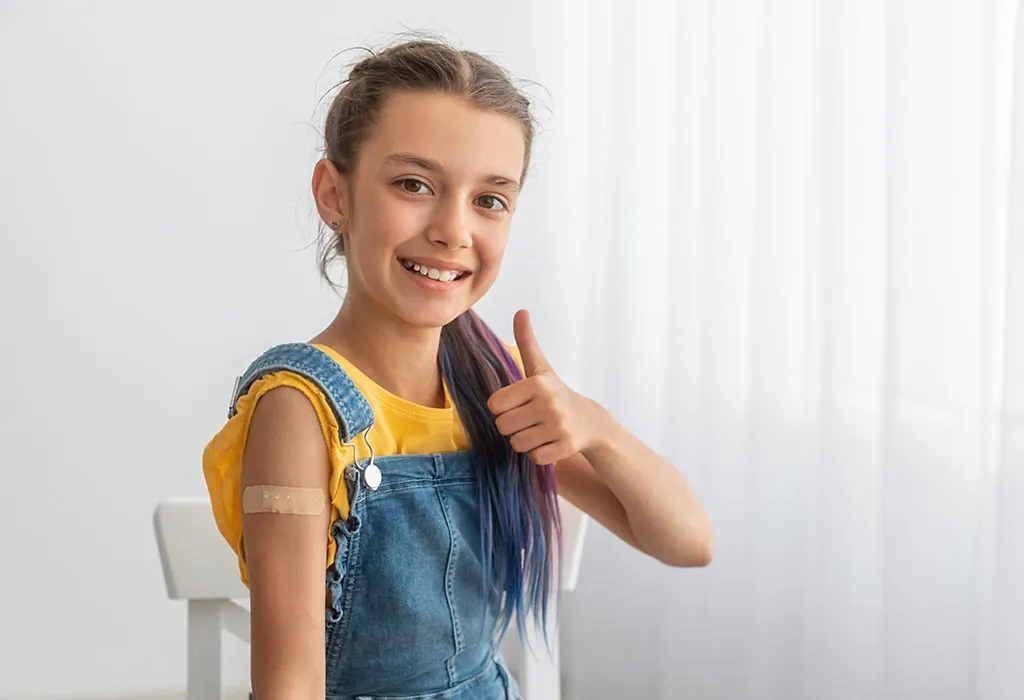
Where Can Children Get Vaccinated With Flu Shots?
Flu shots are available in public and private hospitals and clinics. You can book an appointment with your child’s paediatrician and discuss your little one’s medical history before getting your child the flu vaccine.
Should Children Get Flu Vaccination Every Year?
Yes, children below 5 years of age should get influenza or flu vaccination every year. This is because flu viruses mutate continuously and circulate every flu season. The renewal of the vaccination formula keeps up with the mutated flu viruses that are likely to cause the most illnesses. Moreover, the flu vaccination’s efficacy wears off with time. Hence, an annual flu vaccination will protect the child from the coming flu season (8).
Who Should Not Get the Flu Shot?
The following children should not receive the influenza vaccination:
- Children below 6 months of age as the flu vaccination for this age group has not yet been produced.
- Children with a history of allergic reactions to the dose of flu vaccination or any component of the vaccine.
- Children suffering from a nervous system disorder called Guillain Barré Syndrome.
Children with a mild allergy to eggs (only rashes) can be administered the flu vaccination with a 30-minute observation in clinical care.
It is recommended that you consult your doctor to rule out any possible life-threatening allergies before giving your child a flu vaccination.
What Are the Side Effects of Flu Shots on Children?
The side effects of the flu vaccination on children are usually mild and temporary. Some of the common side effects include (9):
- Soreness or redness at the injection site
- Mild fever
- Fatigue for a day or two
- Muscle ache
- Nausea
- Headache
In the case of intranasal vaccination, runny nose and wheezing are some of the commonly observed side effects, except soreness at the site of injection.
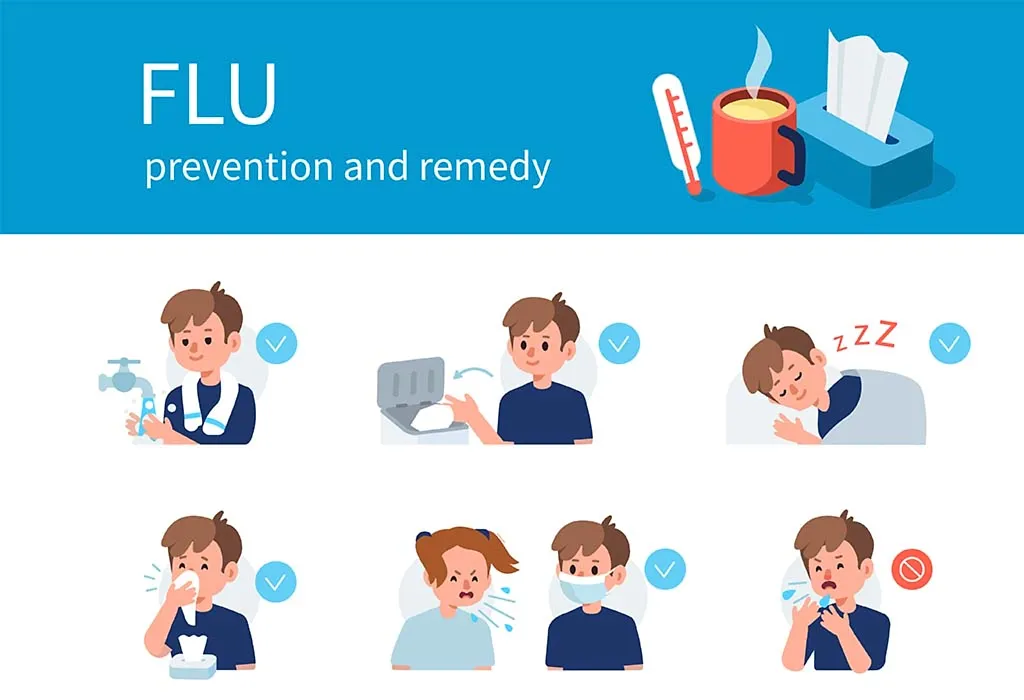
Can Flu Vaccination Cause Flu to My Child?
No, flu vaccination does not cause flu in children (8). Flu shots are made with inactivated influenza viruses or use only a single gene from a flu virus (not the whole virus) to produce antibodies to fight against the flu.
Babies and children may feel a bit unsettled after a day or two of vaccination, but that is normal. Mild side effects from the vaccination, such as a mild fever, indicate that your child’s immune system is responding to the vaccine.
It is also important to remember that a flu vaccination takes around two weeks to be effective in an individual after immunisation, and the individual may contract flu in that period. Therefore, you should take precautions after the vaccination.
FAQs
1. How long does influenza vaccination protect my child?
As the flu strains change every season, the protection from the influenza vaccination lasts only for the current season. That is the reason it is important to get the flu vaccination every year.
2. Can my child get influenza vaccination and COVID-19 vaccination at the same time?
Yes, if your child is eligible for the COVID-19 vaccine, they can get any routine vaccination, including the influenza vaccination, at the same time as the COVID-19 vaccination or one after the other. Consult your paediatrician before getting your little one the flu vaccination, among other immunisations.
3. What if my child tested positive for COVID-19? Should they get the flu vaccination?
Children can receive the flu vaccination after they have recovered from the COVID-19 illness. It is important for the child to get vaccinated to prevent further illness.
Influenza vaccination or flu shots are the best line of defence when it comes to protecting children from catching infections due to their weakened immune systems. Along with immunisation, proper hand hygiene, maintaining distance from sick people and crowds, wearing masks when ill, and eating healthily also contribute to safeguarding children from potential infectious diseases. Watch your child grow into a healthy individual with immunised protection and healthy habits.
For any more information on flu vaccination, consult your paediatrician.
References/Resources:
1. About Influenza; CDC; https://www.cdc.gov/flu/about/index.html
2. Influeza (Flu) Vaccines; ACVIP; https://iapindia.org/pdf/vaccine-information/INFLUENZA-FLU-VACCINES.pdf
3. Children’s flu vaccine; NHS; https://www.nhs.uk/vaccinations/child-flu-vaccine/
4. The Flu Vaccine; Nemours KidsHealth; https://kidshealth.org/en/teens/flu-shot.html
5. Does my child need a flu shot this year?; Mayo Clinic; https://www.mayoclinic.org/healthy-lifestyle/infant-and-toddler-health/expert-answers/flu-shots/faq-20058448
6. M. S, Potdar. V. A, et al.; Dynamics of influenza seasonality at sub-regional levels in India and implications for vaccination timing; PLoS One.; PubMed Central; https://pmc.ncbi.nlm.nih.gov/articles/PMC4418715/; May 2015
7. Koul P. A, Broor. S, et al.; Differences in influenza seasonality by latitude, northern India; Emerg Infect Dis.; PubMed Central; https://pmc.ncbi.nlm.nih.gov/articles/PMC4193176/; October 2014
8. Flu (Influenza); ACVIP; https://acvip.org/parents/columns/flu.php
9. Child flu vaccine; NHS Inform; https://www.nhsinform.scot/healthy-living/immunisation/vaccines/child-flu-vaccine/
Also Read:
Flu Vaccine for Babies and Children
Meningococcal Vaccination
Vaccinations for Newborn Baby
Painless Vaccination for Babies
Child Immunization & Vaccination Schedule
Childhood Vaccinations for Various Diseases
Optional & Mandatory Vaccines for Babies and Children in India
Was This Article Helpful?
Parenting is a huge responsibility, for you as a caregiver, but also for us as a parenting content platform. We understand that and take our responsibility of creating credible content seriously. FirstCry Parenting articles are written and published only after extensive research using factually sound references to deliver quality content that is accurate, validated by experts, and completely reliable. To understand how we go about creating content that is credible, read our editorial policy here.






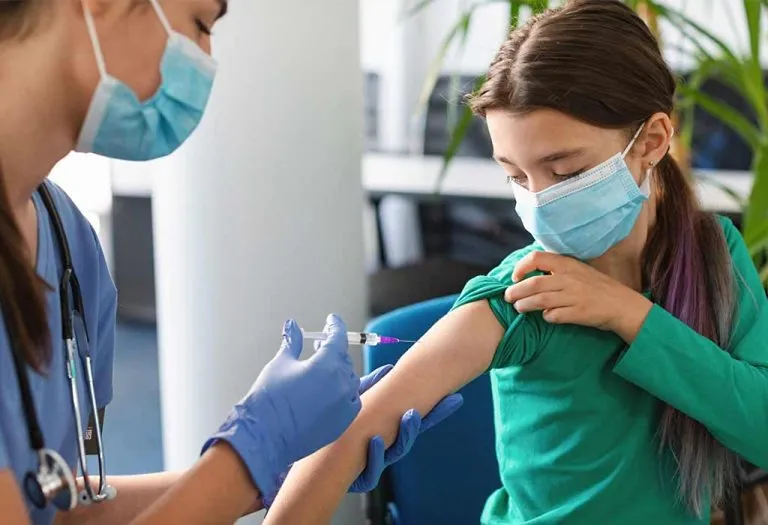
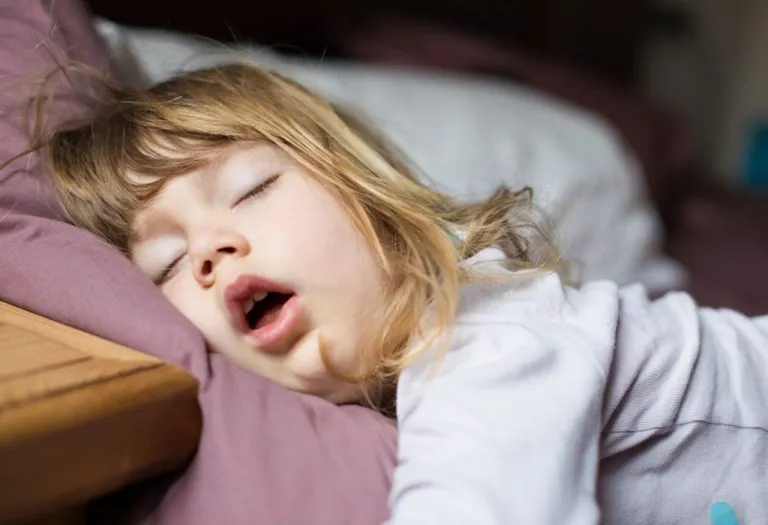


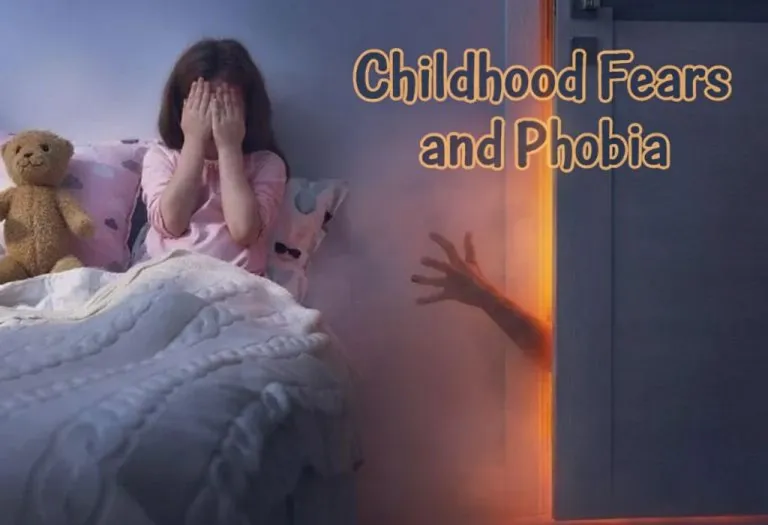
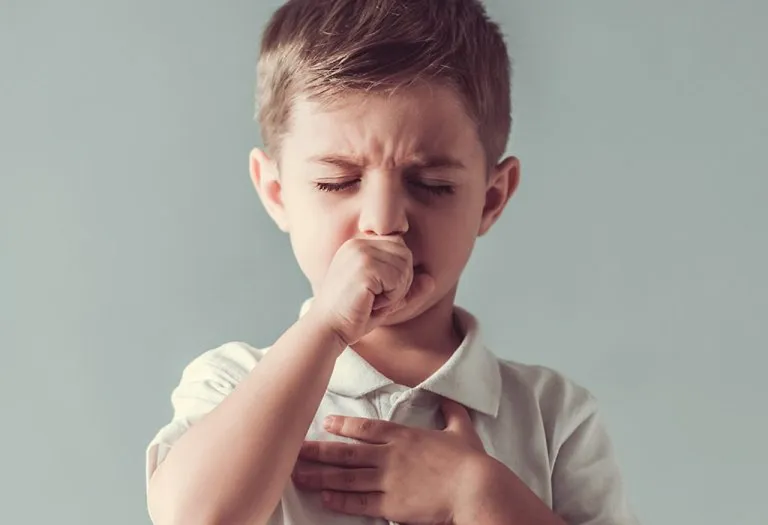


.svg)
















